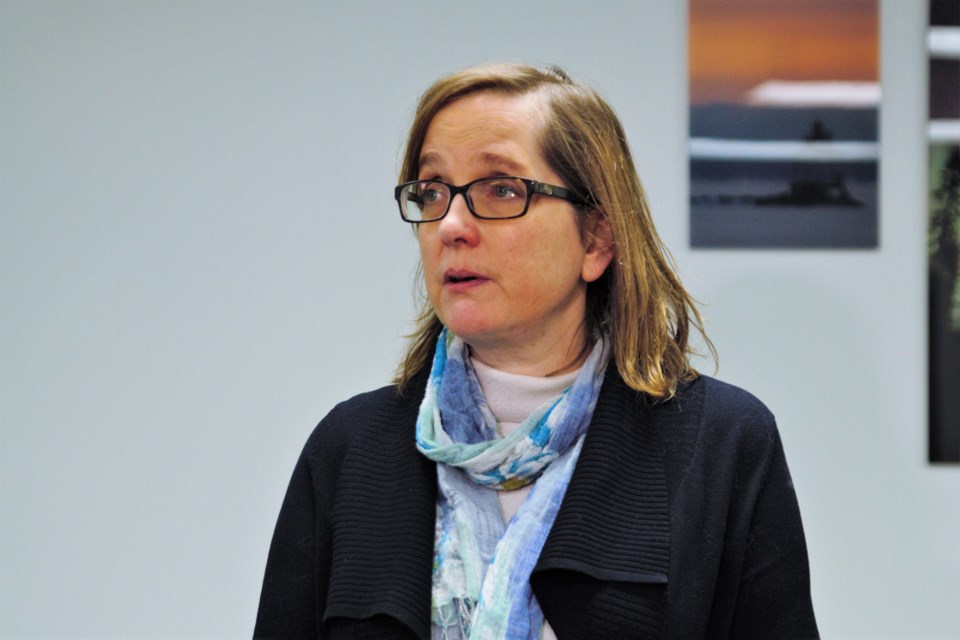THUNDER BAY – Health authorities are urging Ontarians who aren’t fully vaccinated to catch up on booster doses as the province faces a seventh wave of infections tied to the BA.5 Omicron sub-variant.
While local and provincial public health leaders are optimistic the newest wave will be less severe than those past, Thunder Bay’s medical officer of health Dr. Janet DeMille said severe outcomes like hospitalizations are expected to rise in the coming weeks.
Ontario’s chief medical officer of health, Dr. Kieran Moore, said this week the province is in a seventh wave of infections, pointing to a rise in cases, hospitalizations, ICU admissions, and test positivity.
“Looking at the numbers across the province, the wastewater [data] across the province, and hospitalizations, for example, it definitely seems like we’re starting to enter that seventh wave of this pandemic,” DeMille agreed.
The wave is being driven by the BA.5 sub-variant of Omicron, which appears to be more transmissible than previous Omicron variants, and comparably severe.
Locally, DeMille pointed to a small uptick in COVID-19 numbers, but said the trend isn’t yet clear.
“Our numbers do fluctuate, and there’s a lot of limitations in the data, so while it might be just starting to [trend] up , I would wait for at least a week before confirming [that].”
Moore expressed optimism this week the newest wave will see hospitalizations and deaths peak lower than in previous waves.
Waves of infections typically last for between six and ten weeks, DeMille said. While Moore said the province is likely three weeks into the seventh wave, Thunder Bay typically lags provincial trends by one or two weeks, DeMille noted.
While the seventh wave may prove less severe than others, DeMille said it’s a good time for residents to pay attention to layers of protection against infection, such as masking in indoor spaces, staying home when sick, and vaccination.
“I would particularly recommend at this time that people who are at higher risk make sure they have their second booster if they’re due,” she said. “We [also] know there are many people who still [haven’t] had their first booster.”
Those over the age of 60 and those of any age who are immunocompromised are particularly vulnerable, she said.
Many of those people haven't yet gotten the full run of booster shots for which they're eligible, she noted.
Across the Thunder Bay District, there are over 32,000 people aged 60 and older who are eligible for a fourth dose but haven't yet gotten it. There are another roughly 10,000 people aged 50 and older eligible for a third dose.
COVID-19 booster shots are particularly important given accumulating evidence that protection from vaccines tends to wane month-by-month, she said.
Booster shots increase protection from severe outcomes from COVID to around 90 per cent initially, but that falls to around 70 per cent by month five, provincial health authorities say. Older individuals tend to see immunity wane even more quickly.
“As we see this next wave coming our way, and with this highly infectious variant, it’s important to have that protection,” DeMille said. “People can still get an infection even if they’re vaccinated, but they’ll likely get some protection against any infection over the next couple of months, and it actually really increases the protection against severe illness and hospitalization.”
Moore hinted this week the province may expand eligibility for second booster doses to those under 60.
DeMille also raised concerns over how the latest wave will impact already strained emergency rooms and other health care settings.
“Staffing gets impacted in any organization when we have a wave, because [employees] get sick and are unable to attend to work. That can put a lot of pressure on health care organizations… That’s a big reason why we’re really encouraging people to take on those additional layer of protection.”
